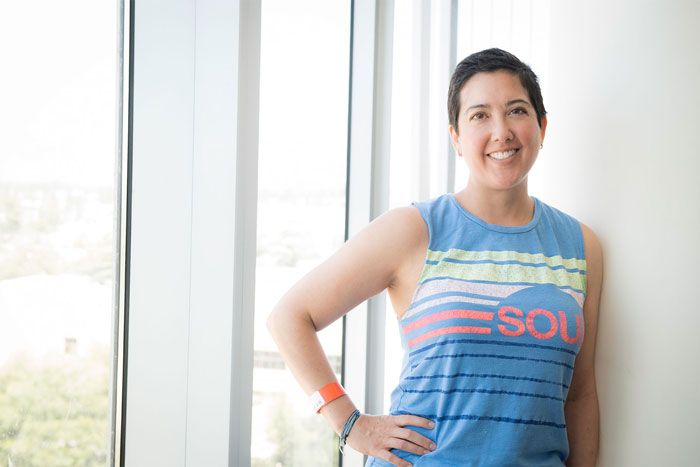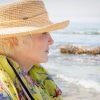 Feature Image by City of Hope
Feature Image by City of Hope
FALL 2019 BOX PARTNER
Here at FabFitFun, we partner with a new charity every season to bring awareness to amazing organizations and nonprofits that are making the world a better place. This season, we’re incredibly honored to join forces with City of Hope, an organization that’s dedicated to finding a cure for cancer and other deadly illnesses while positively impacting patients’ lives during and after treatment.
Below, Krissy Kobata shares how City of Hope supported her throughout her battle with myelodysplastic syndrome.

Krissy Kobata knows what it is like to wait.
For more than 10 years, she waited for a bone marrow donor while inside her body simmered a blood disease called myelodysplastic syndrome.
As Kobata grappled with her condition, she saw friends and acquaintances in similar situations – people whose mixed heritage was a barrier to transplant – do the same. Sometimes in vain.
“Emotionally, I am a ticking time bomb,” said Kobata, whose father is Japanese and mother is Caucasian, in an interview with Glamour in 2012. “Without a transplant, this disease will eventually kill me.”
Finally, Kobata’s care team at City of Hope, which had been monitoring her condition, said she could not wait any longer. She needed a match right away.
“I was getting sicker and sicker,” said Kobata, 35. “And by that time, I was really scared.”
For minorities and mixed-race patients diagnosed with life-threatening blood cancers, bone marrow transplants (BMT) offer a second chance and may be their best hope for a cure. But these patients face an added layer of difficulty when seeking bone marrow matches either within their extended family or from an unrelated donor on the Be The Match registry.
Only 4% of donors on the registry are of mixed-race background.
“Bone marrow matches get more complicated the more racially mixed we are and makes things much more difficult for patients,” says Jill Kendall-Erb, program director for the Be the Match program at City of Hope. “It’s a very big deal because it means you have a donor base that is huge and vast and wide for Caucasian patients, but not for minority patients.”
The best matches tend to come from immediate family members. A patient has about a 25% chance of matching a sibling. But even in large families, there is no guarantee.
To continue reading about Kobata’s journey, head over to fff.me/kobata.
xx, The FabFitFun Team
For more inspiring stories, read about Stacy Kimmel, a five-time cancer survivor, and Donna Mcnutt‘s testimonial on life after cancer.




